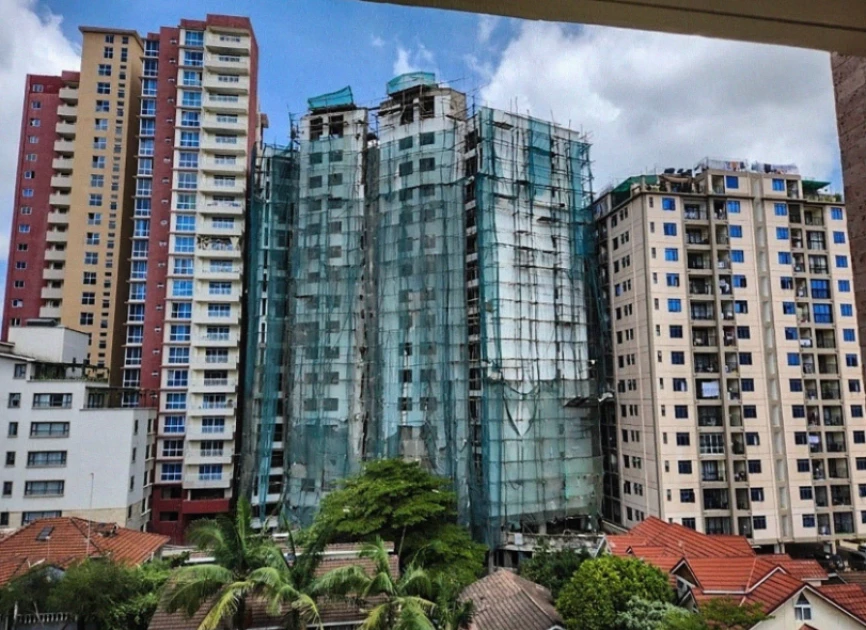Housing scams surge in Nairobi’s prime estates as foreign demand rises

File image of high-rise buildings under construction in Nairobi's Kilimani area.

Audio By Vocalize
A quiet crisis is unfolding in some of Nairobi’s most coveted residential enclaves like Kilimani, Kileleshwa, Jamhuri, and Lavington, where a growing wave of housing scams is catching both locals and foreigners off guard.
As rental demand spikes amid an influx of expatriates and returnees, con artists have infiltrated the booming real estate market, exploiting desperate house hunters with elaborate online and on-site fraud schemes.
Most victims say the trick is simple. The fraudsters post attractive pictures of houses online, pretend to be the real owners or agents, and then ask for deposits before giving out fake keys or disappearing.
Titus Ouma Opondo, a teacher living in Jamhuri, says he lost Ksh.30,000 while looking for a house to rent.
“The man looked genuine. He showed me the house and even gave me a receipt. When I came to move in, I found someone else already living there,” says Titus.
Many residents now fear renting houses online without checking them carefully. Estate agent Beatrice Mwangi, who works in Kilimani, says the problem is caused by too many unregistered agents.
“There are no strict rules. Anyone can call themselves an agent. We need the government to register all agents so that tenants know who is real,” Mwangi explains.
Another victim, Robert Wanga, who works with an international organisation in Kileleshwa, says foreigners are being targeted because they pay higher rent.
“I was asked to send a two-month deposit through mobile money before signing the lease. I later found out the house never existed. It was heartbreaking,” says Robert.
Property expert Dr. Samuel Karanja says the scams could hurt the image of Nairobi’s housing market.
“If this continues, people will stop trusting online rentals. It’s time the authorities made sure all property listings are verified,” he says.


Leave a Comment